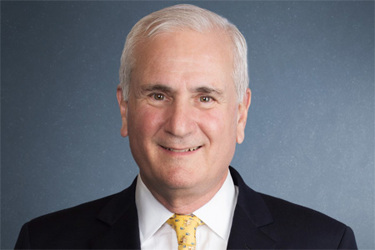What Should We Do About Monkeypox?
By Seth Lederman, CEO, Tonix Pharmaceuticals

U.S. government have declared a health emergency over the monkeypox outbreak. The U.S. Centers for Disease Control (CDC) has activated its Emergency Operations Center, and some observers fear containment may no longer be possible. People like me who study infectious diseases are asked every day: What should we be doing about it?
To be clear, there is no reason to overreact. We have known about monkeypox since the 1950s. It spreads primarily through contact with skin lesions, less commonly through materials contaminated with infectious fluids, and sometimes from mother to fetus. Unlike COVID-19, respiratory transmission occurs only through close and prolonged exposure. Although a significant number of 2022 cases have been in men who have sex with men, it is not a sexually transmitted disease.
At the same time, there is no good reason to underreact. The sudden rise of monkeypox suggests that person-to-person transmission is likely underestimated. The virus incubates for weeks, and people can be infectious unknowingly before lesions are noticeable. While cases in non-African countries resemble a strain found in West Africa with a death rate of less than 1%, another strain circulating in Central Africa has a fatality rate of up to 10%. And because monkeypox has the ability to mutate, we can’t predict what will happen if the virus continues to circulate.
So what should we be doing about monkeypox in the United States?
This is no time to minimize or stigmatize
Pandemic fatigue aside, public health leaders have a responsibility to confront this virus immediately. It is a disease of the unvaccinated surging outside Africa because we ignored it inside Africa for too long. Live-virus smallpox vaccines offered enough cross-protection to largely contain monkeypox, and it crept back into the human population after we stopped routine vaccinations. The thousands of cases reported likely won't turn into a pandemic. But it’s already a crisis: Like an iceberg, we’re seeing only the cases diagnosed, and not the greater number of people who are infected and pre-symptomatic.
As a veteran of the war on HIV/AIDS, I appreciate that panic does not contribute to sound public health policy. However, we pay a steep price when we underestimate virus outbreaks. Some observers have erroneously dismissed monkeypox as a “gay disease,” not unlike what we initially heard about HIV affecting only gay men or COVID being an “old person’s disease.” We all know painfully well that messaging won’t make a public health threat go away.
To prevent or end a pandemic, you have to block transmission
Experts agree that the world remains distinctly vulnerable to the next pandemic. And unlike the dark early days of COVID, we understand how to prevent monkeypox. People contracting the virus are of a generation that was not vaccinated, and governments are scrambling for a limited pool of vaccines and treatments. There is a newer monkeypox vaccine approved in the U.S. for adults, but it is in short supply, is nonreplicating (not a live-virus vaccine), and we don’t know if it blocks forward transmission.
Our experience with COVID-19 has shown that you can’t reach herd immunity if you can’t block forward transmission. Although protection from first-generation COVID vaccines is blunting the burden of severe illness, it has not stopped the virus from spreading. To interrupt the surge of monkeypox, we need a vaccine that can be used to protect broad swaths of the population. Research teams like my colleagues and I have been working on a live horsepox-based vaccine since 2018 because of the potential for smallpox and monkeypox to spread globally.
Action and altruism will be required
Our best response to monkeypox is a live-virus vaccine that can be administered to healthy adults and children. Experience has shown that vaccinating healthy people against smallpox offers protection against monkeypox for people who can’t be vaccinated – including infants, pregnant women, and the immunocompromised. Warding off this disease will call for altruism on the part of those who get vaccinated to help shield the most vulnerable among us.
Fighting any viral threat calls for a collective and government-backed effort. The President’s 2023 federal budget proposal includes more than $80 billion for pandemic preparedness, and enough resources should be allocated to combat the monkeypox surge. The U.S. should invest in innovation to deliver new and improved vaccines, not just in stockpiling existing vaccines. While we don’t yet know how alarmed we should be about monkeypox, its trajectory is uncertain at best.
We cannot ignore the advance of any fast-moving infectious disease. This is a critical opportunity to act on hard-earned pandemic lessons, and we should be stepping up to the challenge.
Seth Lederman, M.D. is the CEO of Tonix Pharmaceuticals, a New Jersey-based biopharmaceutical company developing new vaccines for COVID-19, smallpox and monkeypox.
